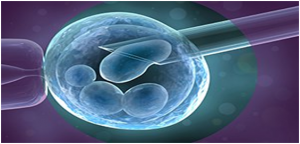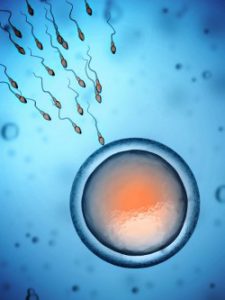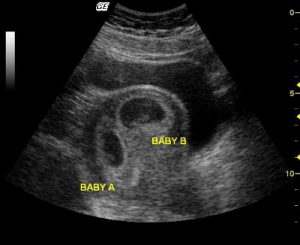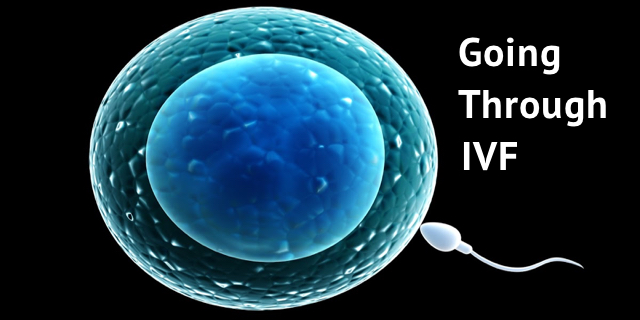The timetable around finding Mr. or Mrs. Right isn’t the same for everyone. My sister-in-law (who I will  call S___ throughout this post) and her husband (H___) found each other when they were 41 and 49 respectively and didn’t marry until they were 44 and 52.
call S___ throughout this post) and her husband (H___) found each other when they were 41 and 49 respectively and didn’t marry until they were 44 and 52.
They wanted children and tried for almost a year to do so but without success. S____ went to the obstetrician gynecologist, who tested her FSH levels. He recommended the Clomid Challenge “I remember we started it right on spring break. I had to warn H____ because it’s a fertility hormone and it makes you kinda crazy.”
“All the tests showed that I wasn’t releasing viable eggs,” S___ remembered. It meant that they would have to go through in vitro fertilization and use donor eggs. “I had to think about this, what did I want to do? We didn’t jump on it right away. I had to process it. I just needed time to think about, did I want children that were not genetically mine?”
They decided to try.
The Fertility Clinic
Though they live close to several medical centers, they opted for a IVF clinic recommended by her gynecologist. The clinic requires potential parents to go through a counseling session and asked what characteristics they would like in their donor. “They took my picture because they would be looking for someone with physical characteristics that looked like me. And I did a wish list. I surprised the nurse by only having three requirements. I said I wanted someone with Scotch/Irish and German heritage with fair skin and curly hair.”
 Then they waited for information about potential donors. “To be a donor, they had to do psychological and physical screening. They had to supply a heath history back to their grandparents,” S____said. Information about the first donor scared my sister-in-law a little. “She had the BRCA gene in her family history and her dad had born with an imperforate anus.” They requested a further search.
Then they waited for information about potential donors. “To be a donor, they had to do psychological and physical screening. They had to supply a heath history back to their grandparents,” S____said. Information about the first donor scared my sister-in-law a little. “She had the BRCA gene in her family history and her dad had born with an imperforate anus.” They requested a further search.
The donor they picked was only 24 years old and had two children of her own. “There’s legal documents that she signed where she gives up all rights to her biological material. We signed paperwork saying we  won’t go looking for her.”
won’t go looking for her.”
While the donor received medications to increase her production of eggs, my sister-in-law’s body had to be prepared for implantation, “I can’t remember the timing of it all but I had to up the hormones with both shots and pills.” They harvested 13 eggs from the donor but only two were viable. “I chose to have those two implanted because I didn’t know if I would do this again. The doctor made a point of saying, ‘There is a very good chance that you will have twins.’ And I said I understand.”
Then the wait began. “My ob-gyn found out that I had an appointment for an ultrasound at the clinic and he hijacked the appointment. He made me wait a month on the hormones to see if I was pregnant.”
Finances
Luck was on my sister and brother-in-law’s side, she got pregnant on the first try. This reduced the cost  of the treatment. “We paid for our donor’s meds and she got $4000 for donating the eggs. Some of the treatment, our insurance covered, but a grand total of $27,000 not covered.”
of the treatment. “We paid for our donor’s meds and she got $4000 for donating the eggs. Some of the treatment, our insurance covered, but a grand total of $27,000 not covered.”
Twins
Weighing about five pounds each, the twins were born at 37 weeks. Their mom was 46 at the time of their birth; their dad 54.
Now they are five years old and energy bundles. And they are curious. “We’ve started talking about how they came to be. We tell them, ‘Dr W___ had extra eggs that mommy could have,'” S___ said. “The nurses  at the IVF clinic told us to start telling them young, just matter of factly. So that’s what we are doing. They are my biological children, not my genetically-related children but they have pieces of me in them because they were inside of me for nine months. They are mine.”
at the IVF clinic told us to start telling them young, just matter of factly. So that’s what we are doing. They are my biological children, not my genetically-related children but they have pieces of me in them because they were inside of me for nine months. They are mine.”
Final Thoughts
S___ wants a conversation about fertility and infertility. “We don’t discuss that there are a finite number of eggs in the body,” she said. “We’ve got to change the discussion. When you start having your period…you need to keep it in the back of your head that you may need to save your own eggs.”
She continued, “I would definitely recommend IVF to other people. I tell my friends, if you know someone who is going through this –give them my email. I don’t want anyone to feel like they are alone. Because you are not alone. I think infertility is a lot more common than people realize.”
If you or a loved one is having issues with infertility, please sign up for Medivizor to receive up-to-date information on treatments.





